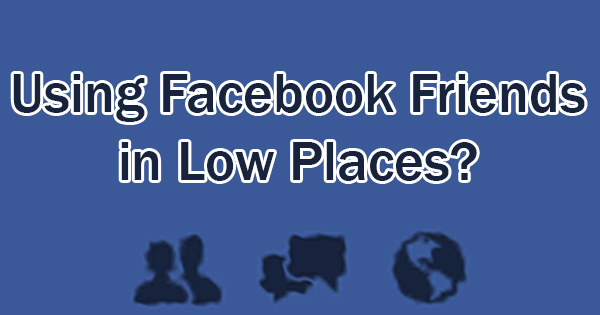
If you’ve spent any time reading the Finish Line Blog, you’re familiar with the fact that many of the titles and inspiration for posts come from music. For the most part, I’ve turned to classic rock, with a little pop and hip hop or rap sprinkled in along the way. Today marks the first times I’ve turned to country music. I’m not much of a country fan, but “Friends in Low Places” by Garth Brooks is a song that I’ll always remember. There’s a story attached to that (isn’t there always), but I’ll get way too far off track (slight pun intended) if I start it now. So, let’s stick to the topic at hand: Facebook, and specifically, fake friend requests. Have you experienced an instance where a friend you were already friends with requested your friendship again? Their name was spelled the same with an identical picture. Are they just fickle, or have they been hacked? We’ll help you decide.
Because of the popularity of social media, it’s become an attractive place for criminals and those looking to inflict havoc on others. The most recent numbers I’ve seen show over 1.5 billion people on Facebook. When you consider that there are nearly 7.5 billion people in the world, it’s easy to see why Facebook would become a likely target. A recent security trend is the “fake” Facebook account. What would a criminal have to gain by creating and using an account like this? For one thing, the ability to gain personal information that may be accessed only by friends. This can be as simple as for marketing purposes…and the increase in spam mail appearing in your e-mail inbox, or as complex as phishing schemes created to target your financial security. Facebook has continually increased their security parameters, but all increased security ever does is force criminals to become more creative.
So, what should you do whenever you receive a friend request? The first step should be to click on the person’s name before confirming (or ignoring). See if the personal information you’re allowed to view “checks out”, and if you have any friends in common. If you know the requester personally and aren’t sure it’s really them, simply ask them if they sent you a request. If you’re already friends on Facebook, don’t just assume that they forgot their password and needed to create a new account. Ask if they’ve been hacked. Another scenario that I (and members of my family who shall remain nameless) have experienced, is receiving friend requests from “women” with very attractive profile pictures. I’d like to think that they found me to be very handsome (as I stand next to my wife in my profile picture) and that they just had to be friends with me on Facebook, but usually there’s something nefarious going on. Along those same lines, if the “woman” has an extremely large percentage of friends who are men, that should be another red flag. The opposite scenario is true as well. Finally, if the person has just joined Facebook, wait a little while before clicking that “Confirm” button. Wait and see if the user acts in a way that your “typical” Facebook user will post and interact with others.
I don’t create these posts to discourage you from using the Internet in general or Facebook in particular. The Internet was a wonderful invention that has allowed us to connect across the globe like never before. I do this simply to educate, and encourage you to use good judgement online and in the real world. Street smarts are just as important on the information superhighway as they are in your own town.
